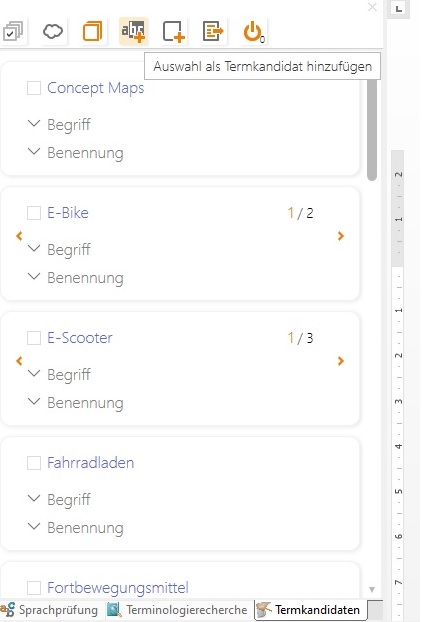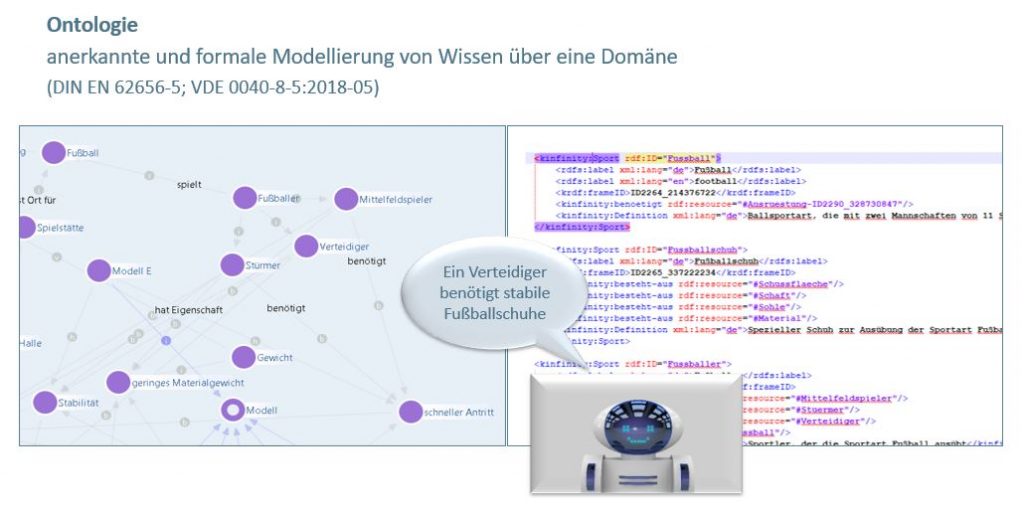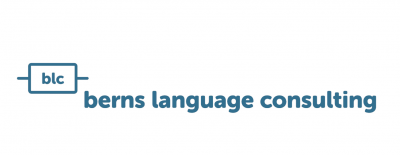Finding a good answer to this question is almost as exciting as my work itself. The assumptions range from translator to speech therapist. At this point, I reveal my secret: As a terminologist, I help companies define their corporate terminology in order to save them time and money, to improve the quality of their texts and to improve their visibility.
What do you need “corporate terminology” for?
This is often the first question that follows. Well, corporate terminology is not only ‘needed’, but it is extremely important for a company to use approved technical terms in both the source and target languages. As a consequence, the texts become more high-quality and both, internal communication and communication with customers in markets around the world will be improved through optimized knowledge transfer.
If I wait proudly for a reaction, the most common answer after a long silence is: “Then you certainly speak many languages, don’t you?” – After a brief doubt as to whether I could actually convey my message correctly, I continue unimpressed: That does not have to be the case, we do not have to master all languages ourselves – because there are experts for everything. And we are the experts for smooth and effective processes and systems for the creation and translation of high-quality and, above all, effective texts.
What do you do with “terminology work”?
Our tasks are diverse. First, it is usually a matter of identifying the terms that have already been used, using monolingual or multi-lingual, tool-assisted term extraction. In doing so, we examine a long list of words for their validity, whereby we carefully coordinate the criteria with the customer in advance.

Then, the technical terms identified should be coordinated with the various departments of the company, because it is very common for many different terms to be used for the same subject. Terminology coordination takes place, for example, on a tool-based basis via coordination workflows, in which the department representatives can discuss the terms. We evaluate the discussions and support the definition of agreed and formally correct technical terms.
Subsequently, the entry is released into the terminology database and the search for equivalents for all company languages is carried out, whereby we take care of the mediation between the persons involved and the maintenance of the terminology database.
But at some point, corporate terminology will be up!
What do I do when I’m done with it? Start over again, because the terminology work is never “finished”! In addition, the terminology is integrated into the entire language processes from editing to translation and publication, and only if the terminology is continuously maintained, the processes can be improved sustainably. In order to always maintain a comprehensive overview, I stay informed about the various tools for terminology, source checking and translation.
And it becomes quite exciting when the terminology is further processed in ontologies. The machine then learns the corporate terminology, including the relationships between the terms. This allows the chatbot, for example, to understand and evaluate human inputs.

Conclusion
Yes, terminology work is Sisyphus work, but it is also THE foundation for solid corporate communication both internally and externally, and all documentation processes in the company are entwined around it.
That’s why I am always at the heart of the action as a terminologist.
Calm, but essential – that’s what I like most about my work as a terminologist!
And if you need help with terminology management, you should contact us.






